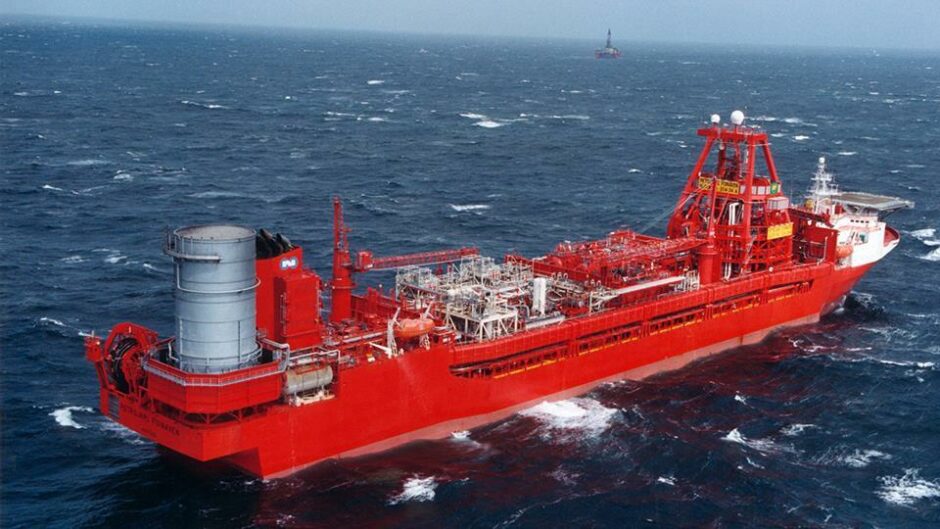
Proposals to decommission the Foinaven floating production storage and offloading (FPSO) vessel have been approved by government.
Oil giant BP (LON: BP) lodged plans with regulator OPRED to remove and dispose of the FPSO and associated infrastructure earlier this year.
It follows a string of health and safety issues in recent times involving the aged vessel.
Along with Foinaven, associated mooring systems, risers and dynamic umbilicals from the North Sea, field, 118 miles west of Shetland, will be brought ashore for “reuse, recycling or disposal”.
BP expects execution of the decommissioning programme to kick off in the third quarter of the year.
The risers and umbilicals will be laid down on the seabed while the supermajor decides how to proceed with Foinaven.
Currently BP is considering a “range of future options” for the field, which may result in “complete redevelopment, partial redevelopment or full decommissioning”.
The pipelines, umbilicals and risers will be wet stored until a call is made.
If it is decided that a redevelopment of Foinaven is not viable, BP will initiate decommissioning programmes for the remaining field infrastructure.
The decision to remove the FPSO, which started production in 1997, was made last year after it reached the end of its 25-year design life.
Altera, which is currently chartered by BP, will resume control of the vessel following removal from the field.
Foinaven field was discovered in 1992 as the first development in the region, with BP’s Schiehallion project following close behind.
In April 2021, BP said it was preparing removal of the “iconic” FPSO after a host of safety issues.
In February 2021, the UK Health and Safety Executive said it had identified cracks in the ship’s hull, with inspectors questioning the “residual strength of the hull”.
It also cast doubts on the vessel’s suitability for operating in the harsh seas west of Shetland, leading BP to conclude that the FPSO is “not the right vehicle” for the potential redevelopment.
Recommended for you

